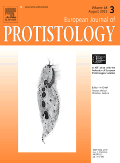
EUROPEAN JOURNAL OF PROTISTOLOGY
metrics 2024
Pioneering Insights into Microbial Life
Introduction
The EUROPEAN JOURNAL OF PROTISTOLOGY, published by Elsevier GmbH, serves as a premier platform for disseminating high-quality research in the field of microbiology, particularly focusing on protistology. With its ISSN 0932-4739 and E-ISSN 1618-0429, this journal has been an essential resource for academics and professionals since its inception in 1987, continuing to impact the scientific community through to 2024. Ranked in the 2023 Q3 category for microbiology, it occupies a significant position in the Scopus rankings, specifically within the disciplines of Immunology and Microbiology, emphasizing its relevance amid a competitive landscape. The journal's commitment to advancing our understanding of protists fosters innovation and contributes to critical discourse among researchers and students alike. Although it does not currently offer open-access options, its rigorous peer-review process ensures that all published work maintains the highest standards of scientific integrity and relevance, making it an indispensable reference for those engaged in microbiological research.
Metrics 2024
 0.50
0.50 1.90
1.90 1.60
1.60 55
55Metrics History
Rank 2024
Scopus
IF (Web Of Science)
JCI (Web Of Science)
Quartile History
Similar Journals

JOURNAL OF CONCHOLOGY
Discovering the Wonders of Aquatic LifeJOURNAL OF CONCHOLOGY, published by the Conchological Society of Great Britain & Ireland, is a prominent academic journal focused on the study of mollusks, specifically their taxonomy, ecology, and evolutionary biology. Through its rigorous peer-review process, it aims to provide a platform for significant research in the field, fostering deeper understanding and appreciation of these diverse organisms. Although it is not currently an Open Access journal, its publications contribute notably to the fields of Agricultural and Biological Sciences, notably in Ecology, Evolution, Behavior and Systematics and Aquatic Science, as indicated by its rankings in Scopus. The journal's archives trace comprehensive coverage from 1981 to 1990 and from 1996 to 2018. With its commitment to advancing conchological knowledge, the JOURNAL OF CONCHOLOGY serves as a crucial resource for researchers, professionals, and students invested in the biological and ecological dimensions of mollusk studies.
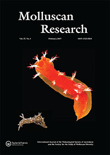
MOLLUSCAN RESEARCH
Dedicated to the Study of Molluscan LifeMolluscan Research is a distinguished journal dedicated to advancing the field of molluscan science, covering a broad spectrum of topics including taxonomy, ecology, evolutionary biology, and conservation. Published by Taylor & Francis Ltd, this journal has been a crucial resource for researchers from its inception in 1987 up to 2024, significantly contributing to the understanding of molluscan species and their roles in various ecosystems. With an impressive impact factor and recognized within the Q3 quartile rankings in Animal Science and Zoology and Ecology, Evolution, Behavior and Systematics, as well as Q4 in Genetics, Molluscan Research serves as a vital platform for dissemination of high-quality original research and reviews. While it does not currently offer Open Access options, the journal remains accessible through institutional subscriptions, fostering collaboration and knowledge-sharing among researchers, professionals, and students across the globe.
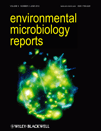
Environmental Microbiology Reports
Pioneering Research at the Intersection of Microbiology and EnvironmentEnvironmental Microbiology Reports, published by WILEY, is a prestigious journal dedicated to the field of environmental microbiology, exploring the intricate interactions between microorganisms and their environments. With an ISSN of 1758-2229, this journal has established itself as a crucial resource for researchers, professionals, and students interested in the latest advancements and applications in microbial ecology, soil science, and environmental sustainability. Since its inception in 2009, the journal has grown in impact and reputation, proudly ranked in the Q1 category for both Agricultural and Biological Sciences and Ecology, Evolution, Behavior and Systematics as of 2023. Notably, it occupies the 17th position out of 193 in its subcategory based on Scopus rankings, showcasing its significance within the field. Although it does not currently offer open access options, the high-quality research published in this journal continues to contribute significantly to the understanding of microbial roles in environmental processes, emphasizing the vital role of microbes in maintaining ecosystem health and promoting sustainable practices.
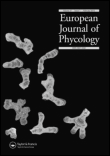
EUROPEAN JOURNAL OF PHYCOLOGY
Exploring the Depths of Algal ScienceThe EUROPEAN JOURNAL OF PHYCOLOGY, published by TAYLOR & FRANCIS LTD, stands as a prominent platform in the fields of Aquatic Science and Plant Science, reflecting its significant contribution to the understanding of algae and freshwater ecosystems. With an ISSN of 0967-0262 and an E-ISSN of 1469-4433, this journal has been disseminating valuable research since its inception in 1993, and it continues to play a pivotal role in advancing scientific knowledge through to 2024. Recognized in the Q2 category for both Aquatic and Plant Sciences in the 2023 rankings, it holds a commendable position in Scopus, being ranked #125 out of 516 and #63 out of 247, respectively. The journal is particularly valuable for researchers, professionals, and students seeking to explore innovative studies and methodologies in phycology and related disciplines. Although it does not currently offer open access, it provides an essential resource for those looking to deepen their understanding of algae's ecological roles and applications.
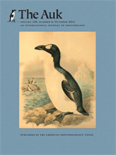
Ornithology
Innovating Research in Avian Ecology.Ornithology, published by Oxford University Press Inc, is a premier journal dedicated to the field of avian biology, offering a platform for researchers, professionals, and students to share groundbreaking findings in the study of birds. With an impressive impact factor and ranking in the Q1 quartile for both Animal Science and Zoology, as well as Ecology, Evolution, Behavior, and Systematics, Ornithology serves as a vital resource for advancing our understanding of avian species and their ecological roles. The journal allows open access viewing, broadening the reach and impact of published research. Covering comprehensive studies from 1982 to 2023, it facilitates collaboration and innovation within the global ornithological community. Engaging with Ornithology not only elevates your research profile but also contributes to the rich tapestry of knowledge concerning the world's diverse bird populations.
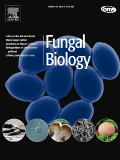
Fungal Biology
Connecting Science and Nature: The Fungal FrontierFungal Biology, published by Elsevier Science Ltd, is a premier journal dedicated to advancing the field of mycology and its interdisciplinary applications. With an ISSN of 1878-6146 and E-ISSN 1878-6162, this journal serves as a vital platform for researchers and professionals interested in the ecological, evolutionary, and genetic aspects of fungi, as well as their implications in infectious diseases and plant sciences. As of 2023, it proudly holds a Q2 ranking in Ecology, Evolution, Behavior and Systematics and Plant Science, and a Q3 ranking in Genetics and Infectious Diseases, highlighting its significant contribution to these domains. The journal boasts an impressive Scopus rank, including a percentile of 83rd in Ecological studies, ensuring that published research reaches a wide audience and impacts ongoing discourse in the field. With open access options, Fungal Biology encourages the dissemination of high-quality research, aimed to foster collaboration and innovation among scholars and practitioners. With its convergence of knowledge from 2010 to 2024, this journal is instrumental for those advancing the understanding of fungal biology and its myriad applications in environmental and health sciences.
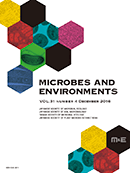
MICROBES AND ENVIRONMENTS
Pioneering Research on Microbes and Their Ecological RolesMICROBES AND ENVIRONMENTS is a prominent academic journal dedicated to advancing the field of microbial ecology, published by the Japanese Society of Microbial Ecology. Since its inception in 1996, the journal has provided a vital platform for disseminating innovative research and insights into the intricate relationships between microbes and their environments. With an impressive impact factor reflected in its Q2 rankings across multiple categories, including Ecology, Evolution, Behavior and Systematics, Medicine, Plant Science, and Soil Science, MICROBES AND ENVIRONMENTS is acknowledged as a significant contributor within the ecological and biological sciences community. The journal’s content, which spans over two decades of cutting-edge research, supports researchers, professionals, and students in enhancing their understanding of microbial functions and their critical roles in various ecosystems. The journal does not operate under an open access model, ensuring that submissions undergo a rigorous peer-review process that upholds its reputation for quality. Engage with MICROBES AND ENVIRONMENTS to explore the ever-evolving landscape of microbial research and its implications for environmental sustainability and public health.
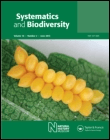
SYSTEMATICS AND BIODIVERSITY
Illuminating the path to understanding biological diversity.Systematics and Biodiversity, published by Taylor & Francis Ltd, is a prominent academic journal that provides a vital platform for advancing research in the fields of ecology, evolution, and plant science. With an ISSN of 1477-2000 and an E-ISSN of 1478-0933, the journal has established itself as a reputable source of scholarly information since its inception in 2003, and continues to publish cutting-edge studies through 2024. Recognized for its rigorous peer-review process, it holds a prestigious position in academic circles, reflected by its Q2 ranking in Ecology, Evolution, Behavior and Systematics and Q1 ranking in Plant Science as of 2023. The journal's contributions are further characterized by its strong performance in Scopus rankings, placing it in the 69th and 68th percentiles in its respective categories. Researchers, professionals, and students alike will find invaluable insights and innovative methodologies within its pages, making Systematics and Biodiversity an essential resource for those dedicated to understanding the complexities of biological diversity and systematics. The journal's impact factors and commitment to high-quality research underscore its significance in shaping the future of ecological and botanical studies.
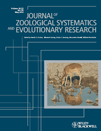
JOURNAL OF ZOOLOGICAL SYSTEMATICS AND EVOLUTIONARY RESEARCH
Charting the Course of Animal Diversity and SystematicsThe Journal of Zoological Systematics and Evolutionary Research, published by Wiley-Hindawi, stands as a premier academic journal since its establishment, showcasing cutting-edge research in the fields of Animal Science, Zoology, and Ecology. With an impressive track record spanning from 1963 to the present, this journal has earned a Q1 classification in both Animal Science and Ecology, as well as recognized rankings in Genetics and Molecular Biology. Its impact is highlighted by its Scopus ranks, placing it in the top percentile for relevant categories, underscoring its vital role in advancing knowledge and understanding within these disciplines. Researchers, professionals, and students will find a wealth of high-quality, peer-reviewed articles that contribute to the evolutionary understanding of biodiversity and systematics. Though not an Open Access journal, it remains accessible to a wide audience committed to exploring the intricacies of zoology and evolutionary biology.

PLANT SYSTEMATICS AND EVOLUTION
Elevating the Science of Plant EvolutionPlant Systematics and Evolution is a prestigious journal published by Springer Wien, dedicated to advancing research within the fields of plant taxonomy, evolution, and ecology. With its ISSN 0378-2697 and E-ISSN 1615-6110, this journal has been pivotal in shaping the scientific landscape since its inception in 1974. Based in Austria, it occupies a significant position in the academic community, being ranked in the Q2 quartile in both Ecology, Evolution, Behavior and Systematics and Plant Science as of 2023. This high-impact journal is recognized for its rigorous peer-review process and is indexed among the top publications in its category, holding a Scopus rank of #176 out of 516 in Plant Science and #252 out of 721 in Ecology, highlighting its relevance and quality in the research community. Although it does not currently offer open access, the journal is committed to making significant contributions to the understanding of plant biodiversity and evolutionary processes. This makes it an essential resource for researchers, professionals, and students aiming to know the latest developments in the study of plant systematics and evolution.